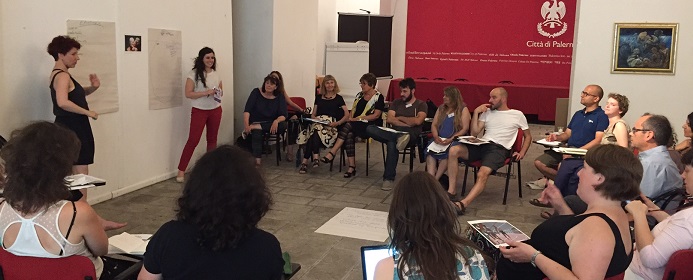
Promoting inclusion in healthcare provision through better awareness and training
Specific training to help prevent discrimination in healthcare services across Europe has been developed and rolled out with the help of Erasmus+ funding.
The Healthy Diversity project brought together partners from the United Kingdom, Denmark, Italy, Austria, Hungary and France to explore issues around cultural diversity in the provision of and access to healthcare.
The three-year initiative, which received an Erasmus+ grant of more than €400,000, was led by Warwickshire-based charity EQuIP (Equality and Inclusion Partnership) and also involved the South Warwickshire NHS Foundation Trust.

“The aim of the project was to increase the competencies and the capacities of healthcare professionals and institutions in meeting the diverse cultural needs of patient groups,” said Junaid Hussain, chief executive at EQuIP.
“In an increasingly interconnected world where travel is easier than ever, each one of us is more likely to meet and interact with people or communities with different values, behaviours, norms, habits and concepts of the world.
“Healthcare provision is not immune to this as different professionals provide services to a wide range of patients having different needs and backgrounds.
I take my hat off to the Erasmus+ programme for the opportunities that it provides, not just for participants, but for organisations as well.
“When not addressed properly by trained professionals, such situations can result in a less-than-ideal experience, building a barrier to healthcare provision that may encompass misunderstandings, failure of diagnosis, the refusal of treatment, under-treatment or even maltreatment and discrimination.”
In order to explore this issue the project partners researched and analysed real-life intercultural encounters drawn from the healthcare sector in each country and used what they learned to produce a suite of freely available online resources, including best practice examples, guidance and training.
“The project has had a huge reach because the networks and the partnerships that each of the respective partner organisations have is huge and covers academia, frontline community-based organisations and frontline health service providers,” said Junaid.
“The concept of discrimination varies. In the UK discrimination is very clear cut. In other countries, characteristics are not always recognised as protected. Many of the European partners looked to the UK as an example of effective practice. However, some of the partners across the EU were also doing fantastic work.
“I think healthcare practitioners and institutions will have benefitted from the areas that we explored through the project, in terms of cultural differences and unpicking them, because it starts with that individual.
“Rather than being about someone from a different culture trying to access a healthcare service, it’s about how a practitioner can be sensitive enough to understand cultural differences and what they can adapt to make healthcare a more positive experience.”
As well as bringing training and awareness benefits to health professionals and end users of services, the Healthy Diversity project brought a fresh perspective for both EQuIP and its collaborators across other community-based organisations and in academia.
“This was the first project where we were the coordinating partner,” said Junaid. “It really was a great experience. For us, this project was a game-changer in terms of shaping our thinking as an organisation but also in terms of the work we do.
“I really do take my hat off to the Erasmus+ programme for the opportunities that it provides, not just for participants, but for organisations as well.”
Read more stories about vocational education and training in Erasmus+ on our dedicated webpage.
